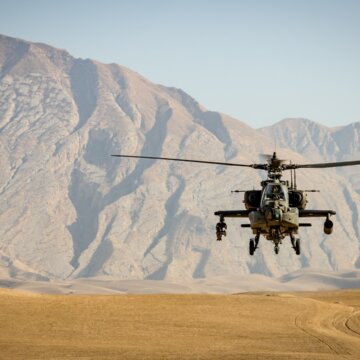- About
- Topics
- Picks
- Audio
- Story
- In-Depth
- Opinion
- News
- Donate
- Signup for our newsletterOur Editors' Best Picks.Send
Read, Debate: Engage.
| topic: | Political violence |
|---|---|
| located: | Afghanistan |
| editor: | Shadi Khan Saif |
Afghans around the world - from the mostly educated individuals who were forced to flee, to the devastated citizens that remained in the country and were stripped of their liberties - continue to witness the collapse of their country one year after the international abandonment and the rise of the Taliban.
August marks one year of the fall of the West-backed regime in Kabul and the return to power of the Taliban in Afghanistan on the heels of a peace accord with the US in Doha, Qatar. As the dust has settled, Afghanistan has gradually become a forgotten, tragic tale.
Without giving any concessions to the hardline Taliban for its oppressive rule, one must also hold the US accountable for paving the way for the group’s rise to power through the Doha talks, after which they abandoned the country and its people altogether.
On the other hand, just like many other violations of the Doha deal, the presence of the top al-Qaeda leader, Ayman al-Zawahiri in Kabul proved yet again that the Taliban only wished to grab power through farcical agreements with the US. The group has proven its disregard for the rights and liberties of its population and has broken several pledges it made in its agreement with the Americans.
Therefore, with this and the exchange of allegations between the two sides about breaches, the Doha Agreement seems devoid of any strategy to deal with the Taliban and eventually the future of nearly 40 million Afghans.
Under such circumstances, Washington seems to have decided to keep the Taliban under pressure by not recognising their government. The Taliban, however, seems to care very little about recognition as it enjoys a monopoly over the country’s power and has enough revenue streams to survive.
But where does that lead? Will we witness a repetition of the 20 years of bloody war on the diplomatic front now?
The international community as a whole must set out clear rights and a reform agenda for Afghanistan through robust political engagement.
True inclusiveness in terms of public representation is what Afghanistan wants - not the splitting and sharing of its resources among wealthy warlords claiming to be community leaders.
Equal rights for women and girls, and nationwide freedom are what Afghanistan wants - not the lavish and symbolic spending of public funds for the limited urban elite.
After decades of destruction, the world owes Afghanistan its freedom, rather than cornering the country into once again becoming vulnerable to all sorts of exploitations by its neighbours and international terrorist groups.
Photo by Andre Klimke

